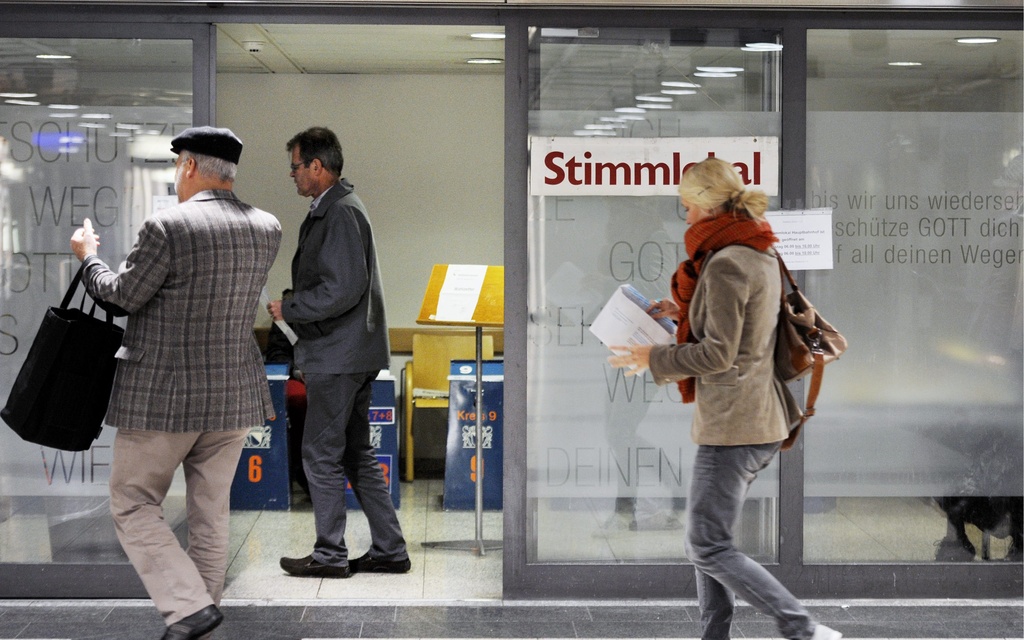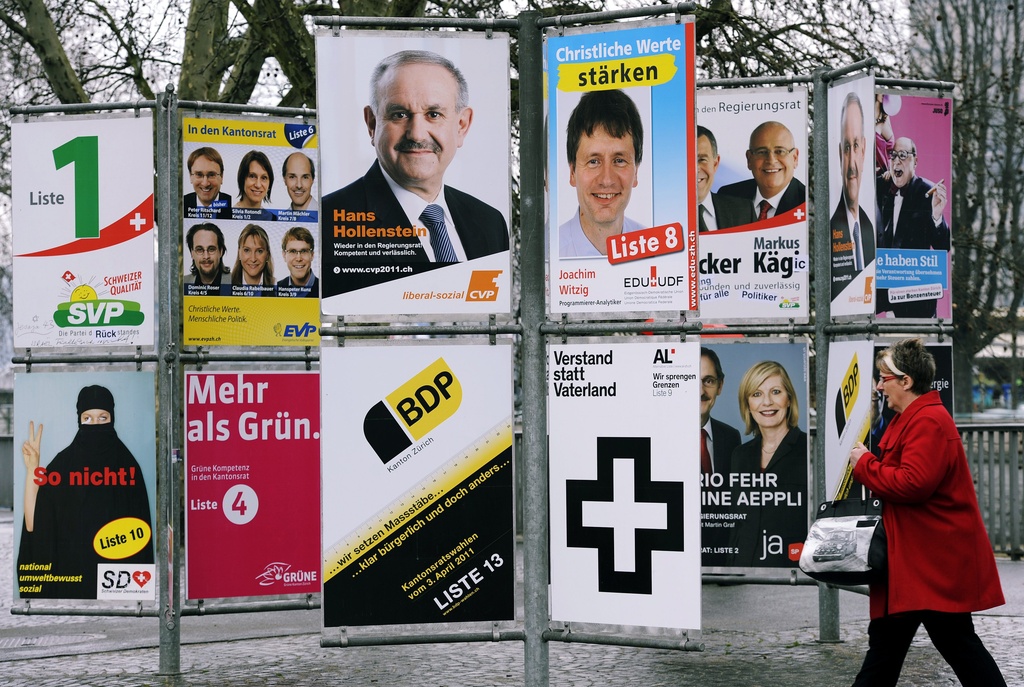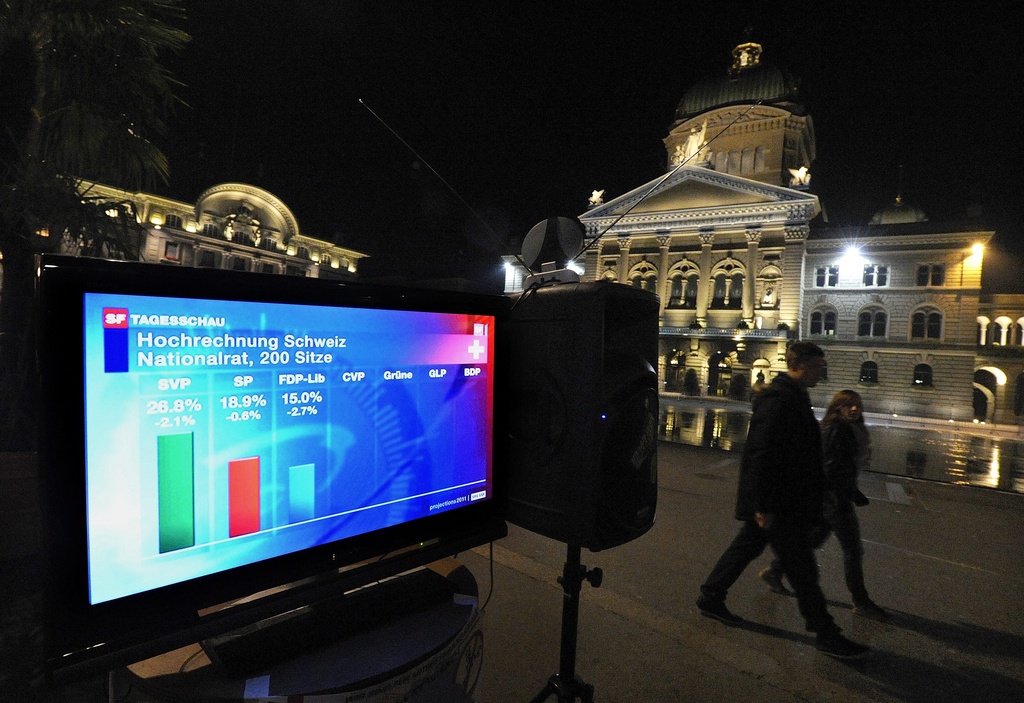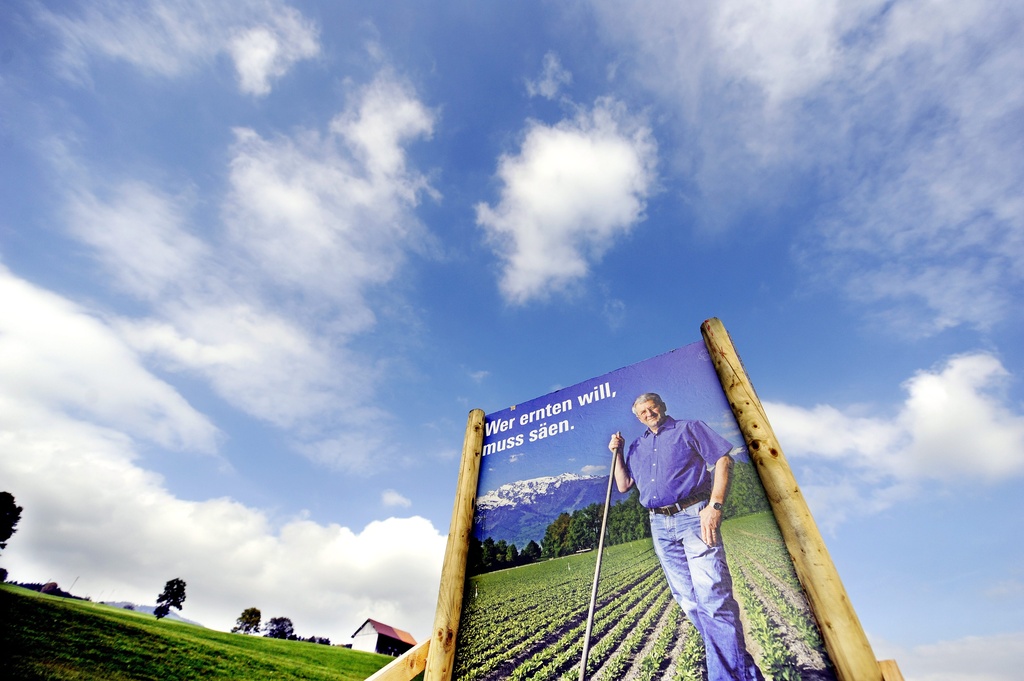Zurich voters take results in their stride

On a bright if somewhat crisp day after the parliamentary elections held every four years, it was very much a case of business-as-usual in Zurich.
This was despite a significant shift in the electoral landscape which saw major parties such as the rightwing Swiss People’s Party (SVP), the Radicals and the Greens in particular lose significant support to new centre parties, the Liberal Greens and the Conservative Democrats.
The general surprise expressed by most political commentators at the results – particularly the loss of eight seats in the House of Representatives by the People’s Party – was not repeated by many of the citizens of Zurich.
Heading into the city centre to talk to locals about their interpretation of the election results, this graffiti scrawled on a wall near the famous Hitl restaurant was an apt precursor to the response to come:
“Stop SVP Brainwash!”
Jacques, 50, a banker waiting for a tram at Paradeplatz, the symbolic heart of the Swiss banking industry, told swissinfo.ch the result was “as expected”.
“The new parties in the middle are getting a little bit stronger so it was not a surprise,” he said. “People are getting fed up with the old establishment parties who don’t change their political direction so people want to vote in the middle with new parties.”
Barbara, 47, a nurse, said she was happy that the centre parties had won more ground in the elections.
“I think it’s good that the parties of the middle have won more. I think it’s not good if the Swiss go too much to the left or too much to the right either. The middle is fine because that’s where the normal people are,” she said, adding that people had lost confidence in the People’s Party.
Too aggressive?
“They say one thing but they do something else. People don’t have trust in them,” Barbara said of the rightwing party, the largest in parliament.
An engineer, Ray, 39, told swissinfo.ch that the People’s Party’s aggressive advertising campaign against immigration had probably worked against it.
“That was probably the biggest point from the People’s Party, that it was so aggressive against immigration in general,” another man said. “I thought the campaign was very negative and a lot of my colleagues and myself didn’t like it.”
It was a sentiment that software engineer Ainsley Post, 30, agreed with.
“The People’s Party advertisements are very in-your-face and I think that might have offended people a little bit,” said Post.
The new greenies
Ray said the success of the Liberal Greens, who picked up an extra nine seats in the House of Representatives by campaigning on a business-friendly environmental platform, was perhaps a sign that voters were concerned both about “quality of life” issues and questions about the economy.
“One of the big things is about transport and the general quality of living in Switzerland,” he said.
“People are extremely concerned, I think, about the economy in general, with what’s happening in the euro zone, the financial crisis worldwide, so I think a lot more people are paying attention to the social aspects and the financial aspects for business to make sure that business is protected to a certain extent in Switzerland.”
Franck, 45, a banker, said the new Liberal Greens had benefited over the Green Party from increased concern amongst voters about environmental issues following the meltdown at the Fukoshima nuclear power station in Japan earlier this year.
“I think people might like environmental issues, but not so much left parties issues,” Franck said.
Jacques agreed: “The change happened because the Green Party has been too ideological and people want to have an environmentally friendly policy but they don’t want to have the ideology,” he said. “They don’t want to be restricted too much, they want to have green solutions.”
Apathetic Swiss?
Once again, more than 50 per cent of those eligible declined to vote in Sunday’s parliamentary elections, and this was reflected in swissinfo.ch’s efforts to engage people on Monday.
For every one person that agreed to speak to this reporter during the three-hour period she was out bugging people for their views on the election results, there were at least four more who declined to be interviewed and most of those, it seemed were women. Why?
“It’s better to say nothing than to say something stupid,” said a young woman in her 20s at the main train station.
“I have no opinion; I didn’t vote; I’m not really interested,” were other common responses.
Insurance broker Carl, 42, said he did not vote in Sunday’s elections, but usually does vote in referendums on issues such as the minaret and foreign criminal initiatives put forward in recent years by the People’s Party.
“Politics hasn’t been so important for me this time,” he said. “Usually I do vote but last weekend I didn’t. It wasn’t about bringing anything new to Switzerland or for canton Zurich. It has only been to elect people from the various parties and this is not what I’m interested in.”
Sitting cross-legged in the sun in front of the Credit Suisse bank at Paradeplatz, three pasty-faced youths were flying the Swiss flag (figuratively speaking) for the global “Occupy” movement, which rails against corporate greed and the power of the banks.
Did they have something to say about the election results?
“No, we don’t take much notice of politics,” came the response.
People’s Party: 54 seats (-8)
Social Democrats: 46 (+3)
Radical Party: 30 (-5)
Christian Democrats: 28 (-3)
Green Party: 15 (-5)
Liberal Greens: 12 (+9)
Conservative Democrats: 9 (+9)
A record 3,458 candidates competed for the 200 seats in the House of Representatives and 44 of 46 Senate seats.
About 5.1 million citizens, including more than 700,000 Swiss expatriates, were eligible to vote.
About 21,000 registered Swiss expatriates could cast their ballot online in ongoing trials with e-voting.
Turnout was expected to be around 49%. Most votes are cast by post.
Elections take place every four years in the second half of October.
The new parliament will choose the seven-member cabinet on December 14.

In compliance with the JTI standards
More: SWI swissinfo.ch certified by the Journalism Trust Initiative




You can find an overview of ongoing debates with our journalists here. Please join us!
If you want to start a conversation about a topic raised in this article or want to report factual errors, email us at english@swissinfo.ch.